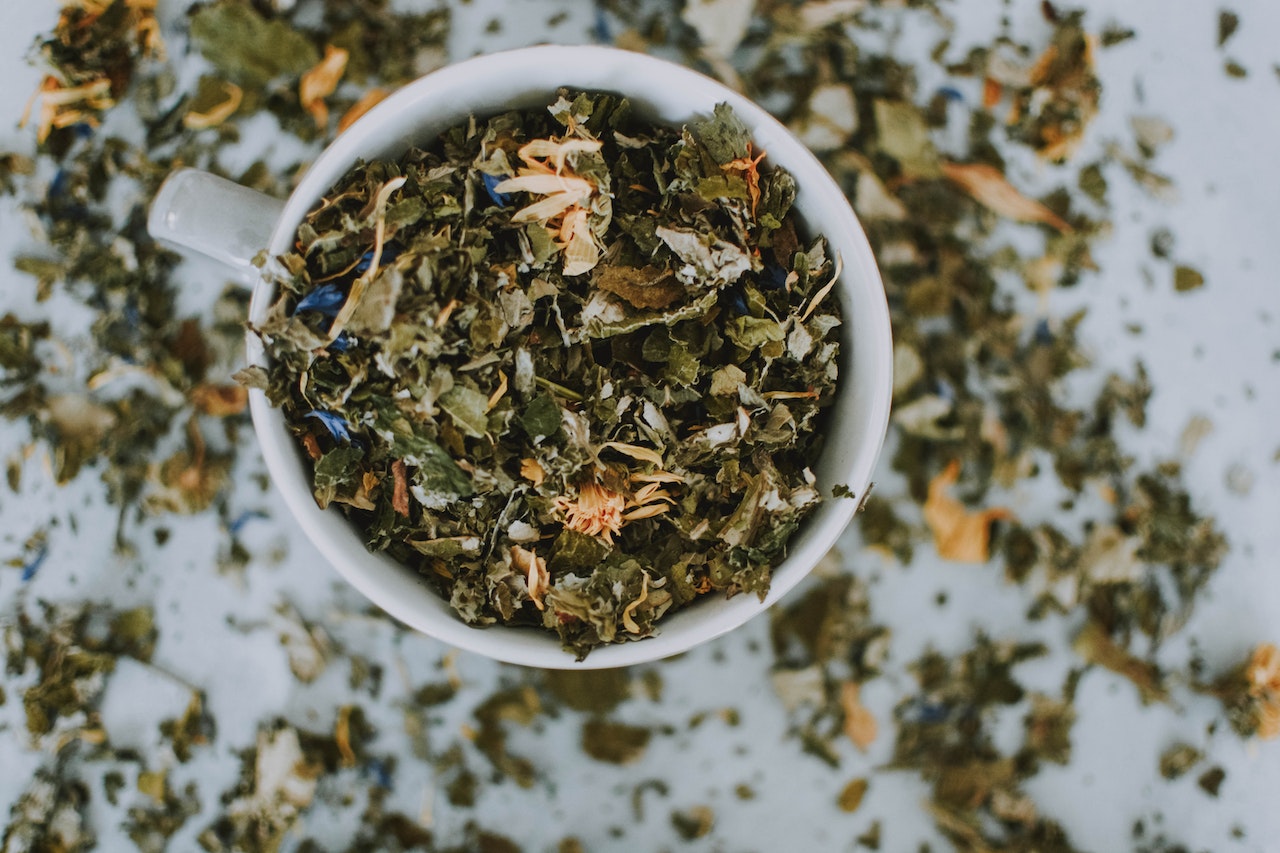
Use These Antiviral Herbs to Fight the Flu
Antiviral Herbs to Fight the Flu Are a Great Replacement for the Flu Shot
That is, if you want to avoid the flu shot.
As more information about flu shots makes its way into the news, people are beginning to understand that they’re not always the best first-line of defense against the flu.
They certainly can be effective, especially for people with compromised or weakened immune systems, but don’t think the flu shot is the end-all be-all when it comes to combating this seasonal menace.
Worse yet is how the CDC estimates that this year’s flu shot is only going to be effective 18% of the time. That’s a pretty poor standard of performance, don’t you think? I mean, if a plumber came to your house and said that there was only an 18% chance that replacing your toilet would work, do you think you’d want to work with them? Probably not.
Which is why, if you want to head into this flu season with an unfair advantage over the flu and other colds, you’ll love this selection of natural defense herbs.
Use These Six Amazing Antiviral Herbs to Fight the Flu
If you’re curious about antiviral herbs, let me give you the quick lowdown on them. An antiviral herb resists the harmful effects that a virus (or bacteria) has on your body. They help boost your immune’s system function and give it the ability to fight viral pathogens so that they have a smaller chance of hurting you. Now, there’s a good reason to go with antiviral herbs over a flu shot.
Flu shots are designed to attack a single viral pathogen. That’s why you see flu shots being named after the virus they need to fight (i.e. H1N1, or H5N1). With antiviral herbs, your whole immune system gets a boost, and this helps your body deal with a flu virus that mutates into something else…something a flu shot would struggle with. This is one reason why they’re often so ineffective.
An added bonus is that these herbs also improve your health in a myriad of other ways, including helping balancing blood sugar, improving digestive health and even helping fight inflammation. So, now you can see why using antiviral herbs to fight the flu can be far superior to the flu shot in many cases.
Without further ado, here are six great antiviral herbs:
#1 -Echinacea
Echinacea is one of the most popular herbs to take when you’re sick. You’ve likely heard doctors telling you to take it as a supplement during a bout of sickness. That’s because echinacea is rich in phytochemicals, which are capable of fighting viruses.
The workhorse in echinacea bears the plant’s namesake. Called echinacein, it helps keep cells safe from invading bacteria and viruses. This cellular support is one of echinacea’s attributes that make it a “superstar” and qualify it is an antiviral herb. Additional benefits provided by echinacea include anti-inflammatory properties, added support for mental health, improved skin problems, and much more.
It’s best taken in tinctures, but you also see it sold in capsules and in teas.
#2- Astragalus Root
Astragalus is an herb you’ve likely heard of or read about on the back of a medicinal label, but you’ve probably never learned much about it. Part of the reason it’s so well known is because this root is part of the backbone of Chinese medicine. It’s been used for centuries by the Chinese to promote wellness, and recent studies support what they’ve known for centuries.
Several studies have shown how helpful it is at fighting viruses. This includes a study showing how it was helpful at inhibiting the advancement of the herpes simplex virus. Another study proved it could inhibit the growth of coxsackie B virus. Lastly, it’s been shown by the Natural Medicines Comprehensive Database (NMCD) that taking astragalus long-term might help prevent colds.
#3 – Elderberry
Elderberry is another herb with a storied history of cold and flu prevention. One of the things I like about elderberry is that it possesses a quality many other herbs don’t: most of the elderberry extracts and tinctures you find taste great! It’s rare to find herbs of any sort that taste like nectar from the gods, but elderberry defies expectation in that regard. This makes it a great addition to any kind of regimen you might have for your children.
Of course, taste is one thing, but there’s also what it does for your immune system and how it dishes out punishment to pesky viruses and bacteria. Not long ago, the Journal of Alternative and Complementary Medicine published a study showing that elderberry can be used as a safe treatment for influenza A and B. Other studies provide evidence that it has a known ability to deliver a knockout punch to many bacterial and viral infections, including the herpes virus.
Combined with other complimentary herbs, elderberry can lay an all-out assault on sickness-inducing viruses, helping you stay healthy and happy.
#4 – Licorice Root
Licorice root is a common component in many herbal teas and “get better” aids. Fortunately, it’s not just added in because it promotes good feelings; it actually presents a very real threat to potentially damaging bacteria and viruses.
In one study that the Chinese Journal of Virology confirmed, licorice root has pronounced antiviral properties. This is because of its triterpenoid content (which help form the basis of most steroids). A 2010 publication also effectively observed that licorice root has antioxidant properties. Not only is this beneficial in helping reduce free-radical activity, but it also helps to boost the body’s natural immune response.
#5- Oregano
Yup, that same herb that pops up in almost every Italian dish possesses some of the most potent anti-viral properties around. This is one of the reasons a large majority of the natural house cleaners you see sold in the supermarket have oregano oil as an active ingredient.
First off, when I speak of oregano, I’m not talking about the loose, green leaf. Instead, it’s the oregano oil that I speak of. We know oregano oil can fight bacterial infections and viruses because of two incredibly powerful compounds called carvacrol and thymol. Both of these compounds have been shown to have significant effects impeding bacterial and viral growth and are even able to do this better than certain antibiotics (without the side effects).
Carvacrol is even able to reverse viral infections, inhibit the growth of tumors, destroy parasites, and help stop inflammation. Amazingly, there have been over 800 studies devoted to carvacrol and almost all of them conclude that it’s an amazing substance.
#6 – Olive Leaf
You don’t hear much about the olive leaf, but it’s a powerful antiviral and has proven abilities to fight a wide range of disease-causing bacteria and viruses. It’s been shown to be effective at reversing candida (“Candida is a genus of yeasts and is the most common cause of fungal infections worldwide”), helping to alleviate fatigue (which is often caused by a compromised immune system), fighting meningitis, hepatitis B, malaria, and gonorrhea, and more.
Research shows that olive leaf extracts effectively fight against a number of disease-causing microbes, including some viruses that cause influenza and other respiratory infections. The powerful compounds found in olive leaves destroy invading organisms and don’t allow viruses to replicate and cause an infection. In fact, the olive leaf is so beneficial to our health that treatment with olive leaf extracts reversed many HIV-1 infection-associated changes in a study done at the New York University School of Medicine.
Recommendations for Antiviral Herbs
There are a host of products on the market that you can take to help fight the flu. However, with the list you just read through, it might be tough to find the right one. I suggest finding something in liquid form, as they’re generally more easily absorbed, and then looking to see if it contains anywhere from three to five of these ingredients. This might be tough depending on where you live and what’s available, but I can promise you that it’s going to be worth it.



